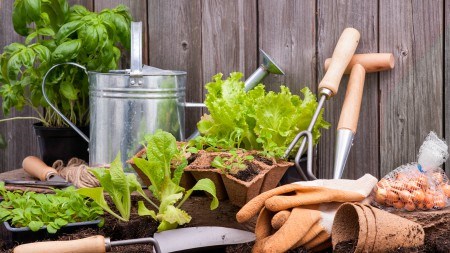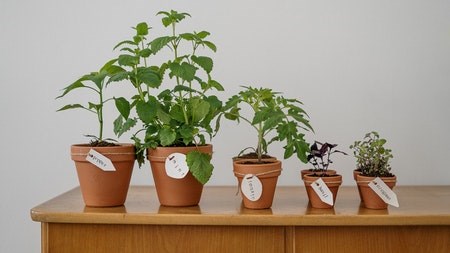Time in abundance
If there’s something South African’s now have in abundance, it is time, time and more time. So, why not use that spare time to go outside and tackle the garden (naturally) like a pro.
Outdoor activities, like gardening, that involve being in nature are often praised as being simple, yet highly effective promoters of psychological and physical wellbeing. In fact, some studies have shown that gardening can play a role in helping to lower cortisol levels which, in turn, lowers stress levels. At a time like this, that’s certainly not a bad thing! So, if you find yourself wondering what to do during the next few days, why not get stuck into your garden - expert-style - with these all-natural, lesser-known tips to help you become a pro gardener:
Keep those used coffee grounds
While coffee might not always be the best thing in excess, there is an upside for your garden to you having “just one more cup”. Used coffee grounds are an incredible source of nitrogen when added to soil or the compost heap and can even help improve the overall health of the soil. Be sure to add your coffee grounds to the soil when they are still wet and mix them in with the same amount of leaves or grass cuttings. You can even add some nitrogen fertiliser at the same time as the coffee grounds to help the nitrogen extraction process along. The addition of the coffee grounds and resultant increase in nitrogen levels go a long way to promote the growth of essential microorganisms in the soil - organisms that are key in the overall function and health of the soil and ultimately, your plants.
Add a little epsom salts
Epsom salt is another natural garden helper, although it is often more well-known for its many health benefits when added to a warm bath. Adding a sprinkling of Epsom salt to your garden, and specifically to tomato plants, helps plants better flower or bear fruit because of the high magnesium and sulphate properties it contains which are essential for plant growth. Epsom salt can also help in the recovery of any plants around the garden that are looking stressed and require a much-needed health boost.
Toss in the eggshells
If like most South African gardeners, you find that your garden has an overeager slug population, fear not! There is an easy and natural remedy right under your nose – crushed eggshells. That’s right; placing crushed eggshells around your plants will go a long way to deter slugs venturing in for a nibble. This is simply because slugs prefer to stay clear of anything with sharp edges, such as that of a crushed eggshell.
Make natural treatments
More often than not, every chemical product has a natural, safer equivalent that can be found with a bit of research so be sure to check the internet for natural treatments and remedies for whatever garden issues or problems you might encounter.
Garlic, for example, can be used as an effective insect repellent.
- Put a clove of garlic into a blender with 2 cups of water and blend until smooth.
- Once blended, pour the liquid into a container, cover it and leave it to stand for 24 hours.
- Once 24 hours have passed, filter the liquid through a cheesecloth or strainer and add 12 more cups of water.
- Spray this liquid onto any affected plants and let garlic do its natural job of repelling insects with its strong odour.
Similarly, baking soda is a great solution for tackling fungal diseases such as powdery mildew or black spot, if you’re not up for using a chemical fungicide. Dissolve a teaspoon of baking soda in 4 cups of water and spray this solution onto the affected plants. For maximum effectiveness, try and spray them every 7 to 14 days or after it has rained.
Try wick watering
This final tip is for those who don’t have large gardens and are instead, flat-dwellers with no gardens. If you live in a flat and are growing ornamental ferns or any kind of tropical plants that need their roots kept consistently moist, you will know how tricky these can be to water given the frequency required and reliance on your memory! An easy way to water these types of plants and keep their roots nice and moist is to convert to wick watering. All you need is an old plastic container with lid, or a 2-litre soft drink bottle, as well as some fabric string or ribbon to serve as the wick. Simply wet the wick, bury one end of it in the soil of your pot and hang the other in a close-by bucket or bowl of water. Due to the scientific principle known as capillary action, water will flow up the wick from the bucket or bowl and into the soil without any fuss from your side. An added bonus – the plant knows just how much water it needs, so it will never under or over-water itself.
In these uncertain times, feeling overwhelmed, stressed and anxious is to be expected. While there is a whole lot more uncertainty lying in wait, there are small positive activities we can focus on each day to make things that much easier and perhaps, a little less stressful. So tomorrow, why not go outside, take a deep breath in and give getting some dirt under those fingernails a try, the natural way.





